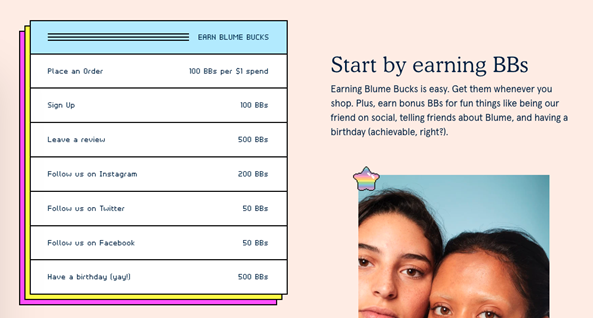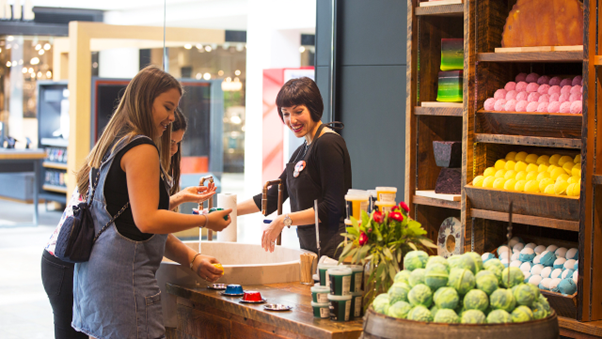The past couple of years have been incredibly rocky for business, regardless of whether you’re a small, independent retailer or one of the major players. In such a harsh environment, customer loyalty has become more important than ever.
This isn't new information, however. Research has consistently shown over time that it’s significantly more expensive and time consuming to acquire a new customer than to retain an existing one. Not only that, but your existing customers are going to spend more money with you on average than a brand-new one.
In this article, we’re going to explore customer loyalty from the perspective of small independent retailers. What tactics have they been using for years that the big guys are only now starting to catch on to? And what can the industry learn from these small businesses to create more loyal customers?
Let's dive right in.
1. Prioritize the customer experience.
Did you know that it only takes one bad experience to lose the attention of nearly half of consumers? With most markets deeply saturated, companies only have one chance to win against their competition. That’s why prioritizing the customer experience is truly key.
For small retailers, this is where they truly shine. They understand that the majority of consumers allocate their loyalty based on customer experience — and as a result, they spend more time adding special touches to the in-store and online experience to keep customers coming back.
Bespoke Post is a subscription service that sends a different-themed box of products to its members every month. The small company takes great care in curating each box and makes them even more personalized by asking every customer to do a quiz that reveals their interests.
Source: Bespoke Post
What can we learn from a company like this? Well, personal touches matter; they show your customers that you care enough to put effort into their experience, and as a result, they’re more inclined to come back time and time again.
2. Reward loyalty with value.
Large companies often make the mistake of creating value-less loyalty programs. Dillard’s, for example — a luxury department store — gives out 10 percent and $10 rewards, but only after a customer spends $750 in the store. Where’s the incentive?
Many small retailers, on the other hand, are experts at creating exclusive offers and rewards that add real value for customers. Think about local coffee shops that give out free drinks for every five purchases, or sustainable clothing retailers that offer rewards for recycling.
While it’s harder to coordinate valuable loyalty programs when you’re a bigger company, the effort is paid back manifold with increased customer loyalty.
Blumetopia is a small body care retailer that offers a loyalty program. Every dollar earns 100 points — customers can quickly rack up points, rather than waiting months to earn a gimmick. They can also earn points through activities like sharing on social media and inviting friends.
Source: Blumetopia
3. Pay attention to what’s happening behind the scenes.
If there are issues with employee loyalty at your company, it won’t take long for the negative attitudes to affect the quality of your customer service.
GameStop, one of the biggest game retailers in the US, has an abysmally low Glassdoor rating of 2.9. They consistently struggled to keep employees onboard — and over the past couple of years, the company has announced the planned closure of over 400 stores.
It’s crucial to have a close-knit team and a strong company culture behind the scenes, which is what small retailers so often get right. There tends to be a greater focus on relationships, fair treatment, and professional development.
If big players want to receive similar sentiments from their employees, they should take steps like:
- Develop an employee schedule that takes employee wellbeing into account
- Encourage social interaction among employees
- Make it easy for employees to give feedback
4. Understand the consumer.
Customers want to know that their needs are not only being heard, but also understood. In fact, 91 percent of customers are “extremely satisfied” with companies that listen to them and understand their needs.
Small retailers often have the advantage of being able to quickly adapt to customer feedback and make changes accordingly. For larger retailers, this can be challenging — but it doesn’t have to be impossible.
With the advancement of channels like social media and customer feedback platforms, it’s becoming easier for large-scale companies to tune into what their customers are saying. It’s about making the most of these platforms and caring about the responses you receive.
LUSH is known for its fresh, handmade bath and beauty products. The company pays close attention to feedback so that customer needs are understood and taken care of.
"Our customer experience isn’t based on NPS scores or data. Instead, we go into stores and chat to customers, or we open lines of communication via social media to create a feedback loop and we use this information to make decisions on the fly based on what our customers are telling us, and when it’s most relevant — not months later," said Emma Brady, Customer Experience Manager, LUSH.
Source: WidowsWear
5. Keep it personal.
Big companies can often feel impersonal, which can lead to a loss of loyalty. What customers really want is to feel connected on a real, human level with the brands they’re loyal to.
According to the #BrandsGetReal study: "When customers feel connected to brands, more than half of consumers (57%) will increase their spending with that brand and 76% will buy from them over a competitor."
Small retailers are experts at creating a personal connection with their customers, and we can learn from their personable attitude toward customers.
The Grommet is a retailer that features new and innovative products from small businesses. This company does an excellent job of telling the stories behind each business and product, which helps to create a personal connection with customers.
Conclusion
As a large retailer, it can be difficult to focus on things like personalization, customer experience, and employee loyalty — but if we look to the small businesses making a big splash, these items are at the top of their priority list. Boost your customer loyalty by making the first move.






